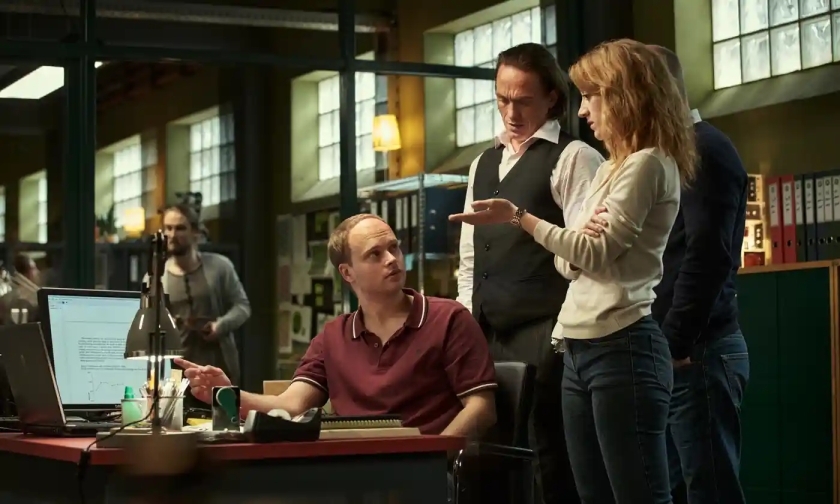The Playlist, a fictionalized account of the ascent of Spotify, the most popular if not most successful music streaming service, that looks forward to how it’s business model may play out. It is not a pretty picture.
The six-part Swedish series, currently streaming on Netflix, provides a fictionalized account of the Spotify story from several insider perspectives. They include an investor, head of legal, chief technology developer and founder Daniel Ek. There is a certain irony in a video streaming service depicting a music one.
Generally reliable Rotten Tomatoes reviewers gave the The Playlist a rating100%, but their video ratings are generally much more generous than those for theatrically released films. There is a lot of subtitled dialogue and changing emphasis on good and bad guys. It is difficult to know where the series is going or its point of view until the last episode.
The Playlist excels for approximately six minutes in episode six (about 32:00 to 38:00) when founder Daniel Ek is subjected to an imagined “2025” U.S. Senate hearing about Spotify’s unfair business practices. It is reminiscent of Facebook founder and principal owner Mark Zuckerberg’s grilling before the Senate in 2018. The litany of Spotify offenses is very real, even if the events are not.
Spotify, which has the largest market share of music streaming services, has traditionally paid artists the least. It claims to have improved compensation, especially for the top artists, where millions of streams are not uncommon. But even they can not rely on the streaming service as a meaningful revenue source. According to Ditto Music, one million streams equal about $4,370; 10,000 just $43.70 on Spotify. As of the close of the U.S. stock market on March 27th the company’s market capitalization or estimated value was just over $25 billion. Spotify, founded in 2006, has never generated a profit.
Three of the biggest record labels, including Warner Music Group, Sony, and Universal Music Group, received a combined 18% ownership stake in Spotify, netting them hundreds of millions of dollars. (Taylor Swift attempted to redistribute some of this wealth in her contract with Universal, which requires that fellow Universal artists participate in proceeds from an equity sale.) Chinese tech leader Tencent, also owns 8.6%.
No Code
The Playlist is reminiscent of the excellent four-part German series about the IP battle for Google Earth, The Billion Dollar Code. It is not anywhere as compelling nor is the narrative as well-constructed. It also is a reminder of The Social Network, the 2010 fictionalized film about Mark Zuckerberg and the rise of Facebook.
It is gratifying that storytellers are identifying IP narratives worth conveying, especially when they involve technology and rights disputes. These stories are not only timely entertainment for viewers, they help to illustrate the challenges faced by the people involved — inventors, musicians, investors, as well as the businesses. Humanizing these stories can have a positive impact on understanding IP rights and events. Eventually, the message will get through.
Image source: Netflix

